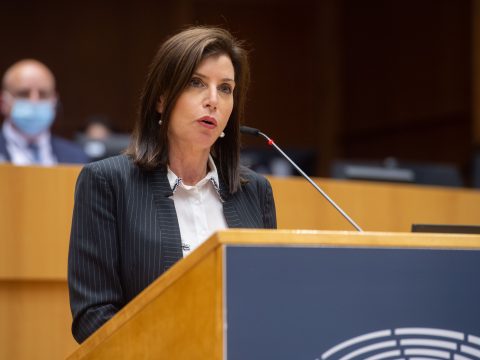16/06/2020
Shadow rapporteur for the Opinion on the implementation of the common commercial policy – annual report 2018
Shadow rapporteur for the Opinion of the Committee on Development for the Committee on International Trade on the implementation of the common commercial policy – annual report 2018 (2019/2197(INI))
SUGGESTIONS
The Committee on Development calls on the Committee on International Trade, as the committee responsible, to incorporate the following suggestions into its motion for a resolution:
- Emphasises that trade is not an end in itself but an important tool for achieving the Sustainable Development Goals (SDGs), by helping to reduce poverty, improve health and support efforts to tackle environmental degradation, and for promoting the EU’s values to this end; highlights the need to build supply-side capacity and trade infrastructure in developing countries, focusing on export diversification, value addition and micro, small and medium-sized enterprises; recalls the EU’s commitment regarding the principle of policy coherence for development and the ‘do-no-harm’ principle;
points out that the EU is committed to a robust, effective and credible commercial policy which will form the basis of a fair and open rules-based multilateral commercial system, which is essential for the further integration of developing countries into global value chains; underlines the importance of technical assistance strategies to that effect; - Stresses the importance of comprehensive, binding and enforceable provisions on social, labour and environmental standards, especially in the trade and sustainable development (TSD) chapters of free trade agreements (FTAs); stresses, in addition, the importance of effective monitoring; calls for the systematic use of comprehensive ex ante and ex post impact assessments on trade sustainability;
- Highlights that trade agreements should not have a negative impact on food security in developing countries; emphasises the need to enable developing countries to assert their food sovereignty and determine by their own democratic means how their food systems
are to be configured; calls for a holistic approach to this effect encompassing key issues such as public procurement, competition (including subsidies), and sanitary and phytosanitary barriers; calls, in particular, for the EU to help developing countries to protect their local food production, support small family farms and build upon the recommendations of the Food and Agriculture Organization of the UN (FAO); - Notes that despite the progress made towards policy coherence for development for the duration of the 2014-2020 common agricultural policy (CAP), the banning of export subsidies has no bearing on the economic distortions resulting from other direct or indirect subsidies, as with the case of dairy products; calls for the EU to embark on a
review of the current provisions of the 1994 Agreement establishing the World Trade Organization (WTO); calls for the EU to provide assistance to developing countries in designing foreign direct investment (FDI) screening mechanisms; - […]













